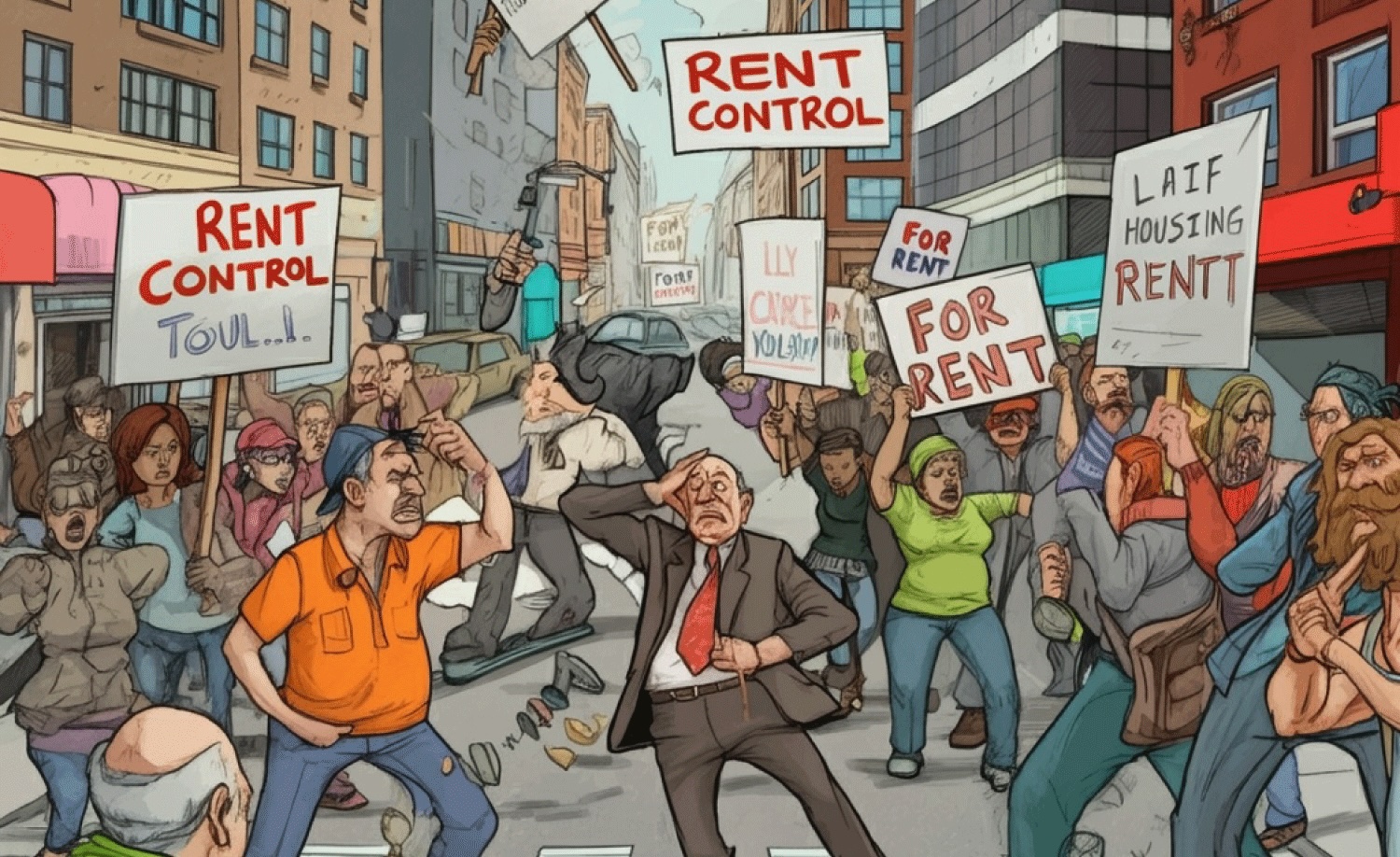Watch Out for Rent-Control Madness
For the latest example of why “local control” is no kind of governing principle, I present readers with the example of Proposition 33 — a rent- control measure that Californians will consider on the November ballot. Its supporters
— a who’s who of left-wing activist groups and mainstream progressive organizations such as the California Democratic Party — claim that the measure merely allows local governments to impose rent controls tailored to local conditions.
Indeed, the so-called Justice for Renters Act features this simple text: “The state may not limit the right of any city, county, or city and county to maintain, enact or expand residential rent control.” If voters approve the initiative, it would repeal the Costa- Hawkins Rental Control Act. That 1995 law responded to concerns by landlords at the growing movement by local governments to impose some of the strictest rent-setting laws in the nation.
Costa-Hawkins exempted newer construction (post–1995) and single-family homes from rent controls and also forbade vacancy controls — laws that control what a landlord can charge for a unit even after a tenant leaves the property. The state currently enforces a statewide rent-control cap (5 percent a year plus inflation with a total cap of 10 percent) and a number of cities have stricter laws. But property owners are free to raise rents to market rates upon vacancy.
Supporters of Prop. 33 are correct the measure doesn’t mandate any form of rent control, but would allow local governments to impose additional controls. However, they know that many liberal cities will immediately jump at the chance to control rental prices to just short of an outright taking. The good news: Voters overwhelmingly rejected two similar measures by the AIDS Healthcare Foundation in 2018 and 2020, so we can hope they do so again.
It’s hard to overstate the degree to which this poses an existential threat to property owners. As the Southern California News Group noted in its recent editorial opposing Proposition 33, some supporters of ending Costa-Hawkins also have expressed support for overturning the Ellis Act — a state law that allows rental owners to go out of business. (Imagine needing a law allowing you to exit a business.)
As the Southern California News Group explained recently in an editorial opposing the initiative, “repeal [of the Ellis Act] along with passage of Prop. 33 would mean landlords could be forced to remain in a money losing business against their will. With Prop. 33, cities would be free to regulate your single-family house — making it virtually impossible to evict a tenant so you can move back in.”
So the state could forbid a landlord from raising rents in order to turn a profit — and also forbid that landlord from exiting the rental business. Indentured servitude might soon make a comeback in California under the guise of protecting tenants from market- based rent increases. But, hey, it’s the local elected officials who are doing so, so how dare we complain?
For instance, Huntington Beach’s then-Mayor (and current state Senate candidate) Tony Strickland said the following at a council meeting: “Statewide rent control is a ludicrous idea, but the measure’s language goes further. It gives local governments ironclad protections from the state’s housing policy and therefore overreaching enforcement.”
Some publications viewed that as support for Prop. 33, which would be odd for a “conservative” Republican. Strickland has been so intent on invoking local control to oppose state policies that reduce regulations for building multi-family housing that he seemed to be arguing that the measure might help his city and other localities evade state housing laws.
Strickland thankfully clarified and assured voters that he opposes statewide rent control, but it was a reminder of the odd places politicians will go when they take local control — rather than more personal liberty — as a foundational principle. In California, local governments are more apt than the state or feds to a) raise taxes; b) impose price controls; c) regulate guns, etc. Conservatives and progressives often use that mantra on a situational basis.
A few things are obvious. Rent control destroys housing markets, just as all price controls destroy whatever markets they seek to regulate. They keep prices “low” but then shortages emerge. It reminds me of the old Soviet joke, where price controls were rampant: “A man walks into a shop and asks if they have any meat. The clerk says, ‘No, here we don’t have any fish. The shop that doesn’t have any meat is across the street.’”
Supporters of rent control try to create the impression that there’s disagreement among economists about the impact of rent control. There is no such disagreement among serious scholars. Even the socialist Swedish economist Assar Lindbeck famously said, “In many cases rent control appears to be the most efficient technique presently known to destroy a city — except for bombing.” When your preferred policy is as useful as bombing, you might have a problem.
Recent studies show San Francisco’s rent-control policies reduced rental-home supply by 15 percent. I’ve reported on the thousands of vacant units in that city — mainly the result of property owners who rather forego $3,000 or more a month in rent that rent their apartment to a stranger who might be impossible to evict because of the city’s tenant laws.
Imagine how much supplies might fall if voters give that city the greenlight to impose even more extreme rent controls? And it’s clear that many California cities are chomping at the bit to pass these laws, even though rent prices appear to be moderating.
Soaring rent and home prices are the direct result of California’s long-standing environmental and slow-growth regulations that have resulted in too
little housing construction to meet demand. Instead of obliterating property rights in the name of local control, Californians need to further reduce building rules and let its residents control their own lives.
WRITTEN BY ST EVE N G R E E N H U T | ORIGINALLY PUBLISHED IN THE AMERICAN SPECTATOR
Steven Greenhut is the Western region director for the R Street Institute and an author, speaker, public commentator and coalition ally in venues where it is possible to move state and local policy in a free-market direction. Steven is the author of three books, Abuse of Power: How the Government Misuses Eminent Domain (2004); Plunder! How Public Employee Unions are Raiding Treasuries, Controlling Our Lives and Bankrupting the Nation (2009); and Winning the Water Wars: California Can Meet its Water Needs by Promoting Abundance Rather than Managing Scarcity (2020).










